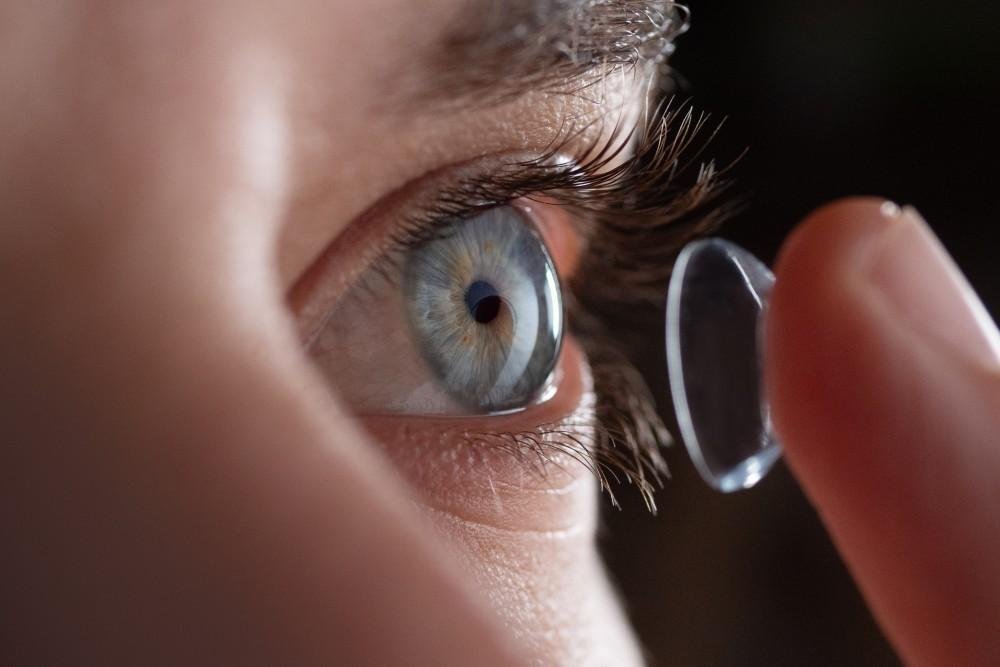Vision correction technology has advanced rapidly in recent years, and in 2025, one solution is emerging as a favorite for patients who want clear, hassle-free vision without the risks of permanent surgery: Implantable Contact Lenses (ICLs).
But why are more people opting for ICLs over glasses, LASIK, or traditional contact lenses? The answer lies in a combination of safety, reversibility, comfort, and superior vision results. Here’s a deeper look into why ICL is on the rise in 2025.
1. LASIK Limitations Are Driving Interest in ICL
LASIK has long been considered the gold standard for vision correction, but it’s not suitable for everyone. In 2025, more patients are learning that thin corneas, dry eyes, or high prescriptions can disqualify them from LASIK.
ICLs provide a non-destructive alternative that works for a broader range of patients, especially those with severe nearsightedness or corneal concerns.
💡 Trend: Surgeons report increasing consultations from patients turned away from LASIK, now successfully treated with ICLs.
2. Patients Want Reversible Procedures
One of the biggest reasons people are choosing ICL is because it’s reversible. Unlike LASIK, which permanently alters the shape of your cornea, ICLs can be safely removed or replaced if your prescription changes or if future eye conditions (like cataracts) develop.
In a world where people want flexibility and control over their bodies, reversible procedures are more appealing than ever.
🔁 2025 Insight: Reversibility is a key driver among younger patients wary of permanent laser surgery.
3. Enhanced Safety and Improved Technology
ICL technology has significantly evolved. In 2025, modern ICLs are:
- Made with Collamer, a biocompatible material that reduces inflammation and enhances comfort.
- Designed to allow natural fluid flow, reducing the risk of increased eye pressure.
- Available with built-in UV protection to safeguard retinal health.
This means fewer complications, more comfort, and better long-term outcomes — and patients are taking notice.
🛡️ What’s new: Next-gen ICL designs in 2025 offer improved safety profiles and better customization for individual eye shapes.
4. Exceptional Vision Quality
Studies and patient reports consistently show that ICLs provide crisper, sharper, and higher-contrast vision compared to LASIK, especially in low-light environments like night driving.
People in 2025 want more than “good enough” — they want exceptional vision. ICLs deliver that, often correcting vision beyond 20/20.
🌙 Night vision bonus: Fewer halos and glare compared to LASIK, making ICLs ideal for drivers, pilots, and professionals working in dim settings.
5. Lifestyle Freedom Without Daily Hassles
In a fast-paced, on-the-go world, many people are tired of the inconvenience of glasses or daily contact lenses. ICLs offer the freedom of clear, maintenance-free vision without the dryness or discomfort of external lenses.
💼 2025 lifestyle trend: More active professionals, travelers, and digital nomads are turning to ICL for convenience and reliability.
6. Ideal for Digital Eye Strain and Dry Eyes
With more screen time than ever — from remote work to smart glasses and AR devices — digital eye strain and dryness are common complaints. Traditional contact lenses can make dry eyes worse.
Because ICLs are placed inside the eye, they don’t interfere with the tear film and are much more comfortable for people prone to dryness.
💻 Health edge: ICLs are becoming the preferred choice for patients with dry eye syndrome in 2025.
7. A Better Option for High Prescriptions
Not all vision correction procedures work for people with very high degrees of nearsightedness or astigmatism. LASIK has a limit. Glasses can become thick and distort peripheral vision.
ICLs can correct extremely high prescriptions — often up to -20.00 diopters or more — while maintaining a thin profile inside the eye and producing natural, sharp vision.
📈 Why it matters: In 2025, more people are turning to ICLs to correct vision that glasses and LASIK can’t handle effectively.
8. Popularity Fueled by Patient Reviews and Word of Mouth
More patients than ever are sharing their positive ICL experiences online. With satisfaction rates over 95%, glowing testimonials on YouTube, Instagram, and TikTok are influencing peers to explore the procedure for themselves.
📱 Social proof: ICLs are trending on social media in 2025, with influencers and celebrities helping normalize vision correction surgery.
9. Minimally Invasive with Fast Recovery
The ICL procedure is quick (15–30 minutes per eye), involves a tiny incision, and requires minimal recovery time. Most patients return to work or daily activities within 24–48 hours.
This minimally invasive appeal is particularly important in 2025, as people seek procedures that won’t interrupt their busy lives.
⏱️ Quick facts: Short downtime and no stitches mean less disruption and faster results.
10. Greater Accessibility and Affordability
As ICL technology becomes more widespread and competition among providers grows, the cost of the procedure has become more affordable in 2025. Many clinics now offer flexible payment plans and financing options, making the procedure more accessible than ever.
💸 Affordability boost: Long-term savings over glasses and contact lenses make ICL a smart investment for many.
Conclusion: ICL Is the Future of Vision Correction
In 2025, Implantable Contact Lenses are no longer a niche procedure. They are a mainstream, medically proven, and increasingly preferred choice for people who want clear, comfortable, and reliable vision — without the compromises of glasses or the permanence of LASIK.
If you’re looking for a vision correction option that combines innovation, safety, and freedom, ICL might be exactly what your eyes need.




